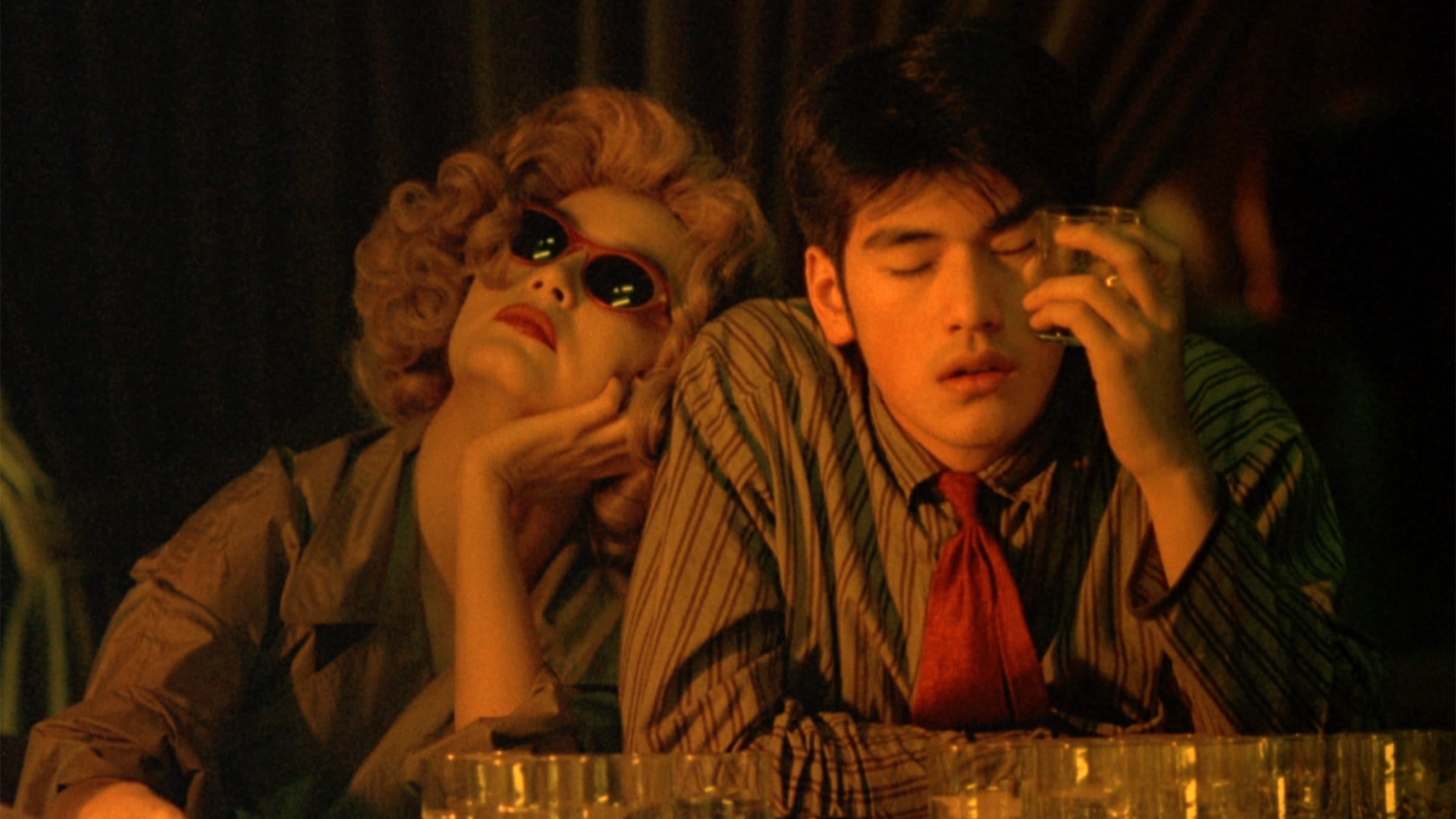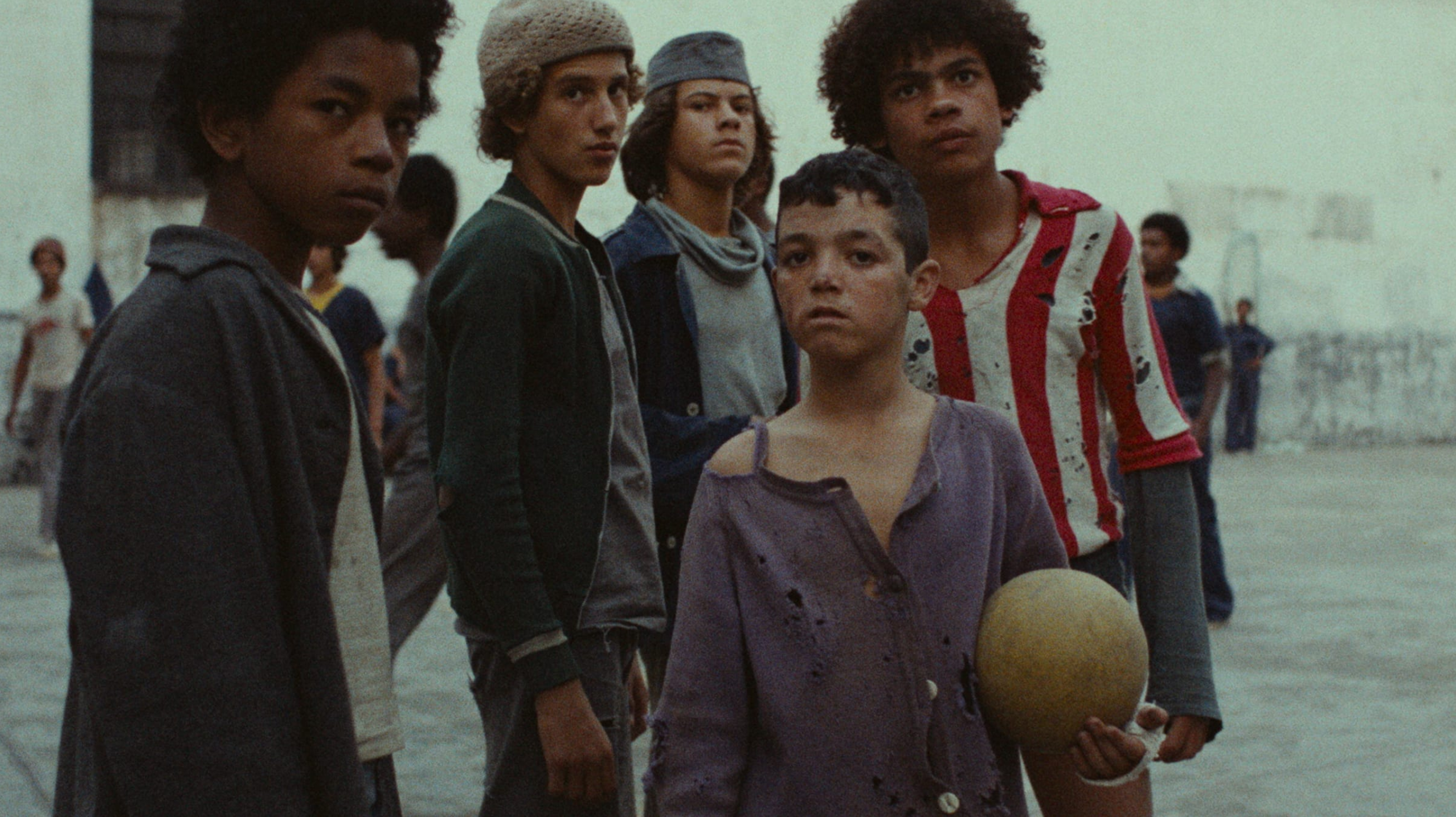Parasite : Notes from the Underground
by Inkoo Kang
OCT 30, 2020
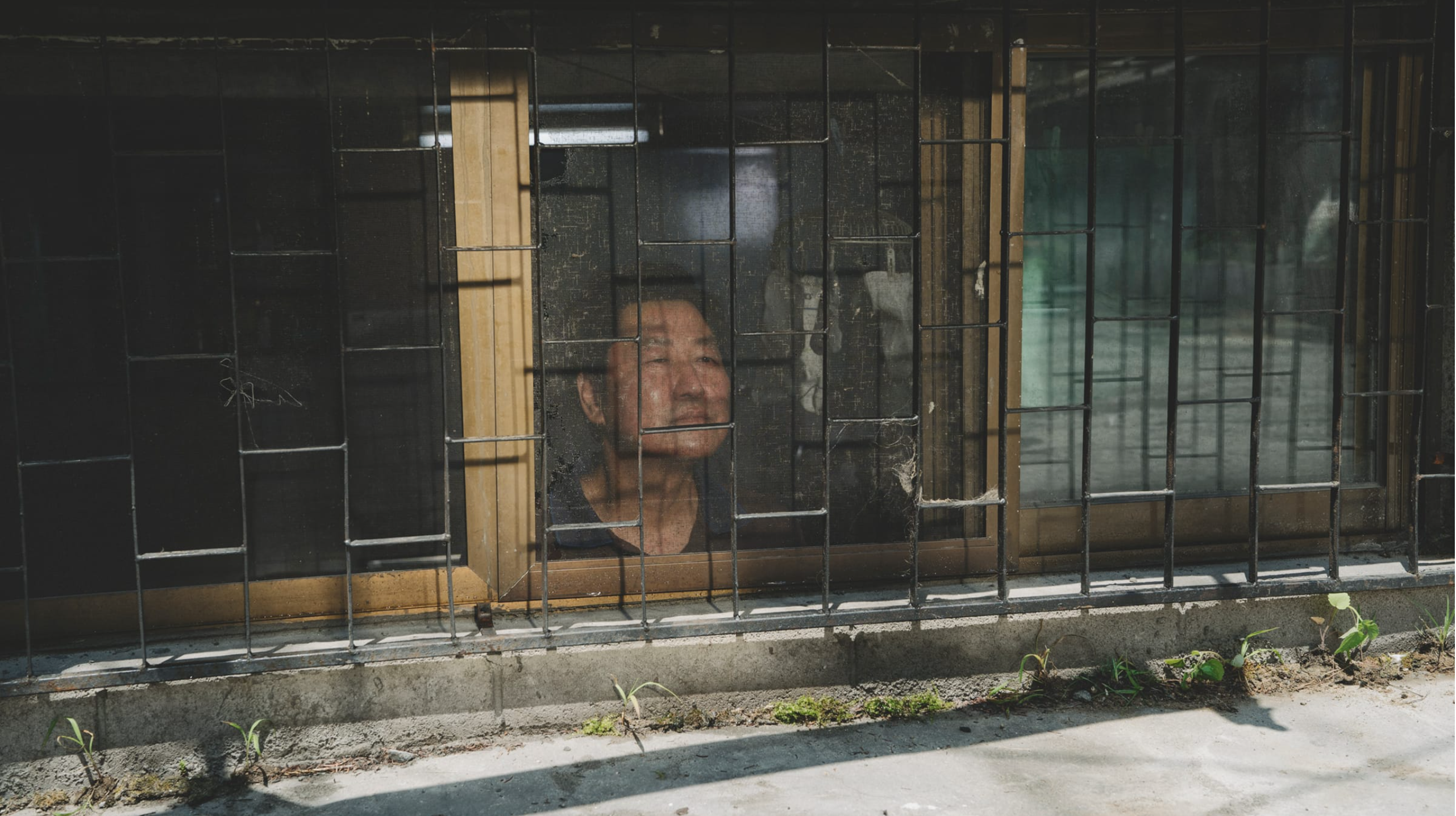
For a film that ultimately delivers such an outraged, sorrowful, and incisive message about class inequity and the humanity-crushing mechanisms needed to maintain it, Bong Joon Ho’s Parasite (2019) begins with surprising levity, with a twist on a classic heist. The plot is set in motion by a tiny ruse—on the misleading recommendation of a college-student friend, Kim Ki-woo (Choi Woo Shik) gets himself hired as an English tutor for Park Da-hye (Jung Ziso), the teenage daughter of a well-heeled family—that snowballs into a daring swindle. Although early in the film we see Ki‑woo beg unsuccessfully for a part-time job at a pizzeria, his (forged) degree and nom de guerre, Kevin, make him not just worthy but above suspicion in the Parks’ rarefied Seoul neighborhood.
When Ki-woo first arrives at the Parks’ urban estate—its expansive, verdant yard a shocking oasis within ultradense Seoul—he is uninitiated enough in the customs of the jet set to mistake the uniformed housekeeper, Moon-gwang (Lee Jung Eun), for the lady of the house. He recovers quickly. Ki-woo’s performance of affluence and exclusivity—which, as much as the English lessons, is what Mrs. Park (Cho Yeo Jeong) is paying for—soon rivals in sneaky mischief the “chain of recommendations” that follows. Ki-woo gets his younger sister, Ki‑jung (Park So Dam), seemingly just out of high school, appointed as an art therapist for the Parks’ young son, Da-song (Jung Hyeon Jun), by passing her off as an acquaintance named Jessica and credentialing her with an American education. The Kim siblings then scheme to oust the Parks’ driver and housekeeper and replace them with their father (Song Kang Ho) and mother (Chang Hyae Jin), both posing as strangers to each other and to their children under the Parks’ roof.
Ki-woo and Ki-jung’s flawless pantomime of prestige is pure genre pleasure, as is the Kims’ masterful manipulation of the Parks’ anxieties about the employees on whom they depend. The wealthy family, so fearful about hiring the wrong people, couldn’t have hired wronger people. But unlike, say, Danny Ocean and his gang in Ocean’s Eleven, the Kims aren’t out for a wad of cash. They may be manufacturing false identities to make more money than they’ve ever dreamed of, but, even in this bit of asymmetrical class warfare, the grand prize they’re after is still just the privilege of being the help. The clever repurposing of blockbuster tropes is a Bong calling card, as is the deep undertow of sociological grimness beneath the tension-filled high jinks. After the Kims’ “heist,” Parasite’s social satire, tightly plotted caper, and character-based comedy give way to action sequences, horrorlike starts and stabs, and, ultimately, stinging tragedy. The epistolary coda makes the act of hope pitiable.

Often described as South Korea’s Steven Spielberg—a crowd-pleasing filmmaker who has enjoyed wide critical acclaim and astronomical box-office success—Bong is an artist remarkably at ease in an array of tones and registers, and is boyishly gleeful in mixing them to unnerving ends. Despite his genial public appearances, it’s easy to take the director at his word when he describes himself as a weirdo and a misfit, as he often does in interviews. After spending part of his childhood in conservative Daegu, in southeastern South Korea, he moved with his family to Seoul and then became a university student there in the late 1980s, and soon a left-leaning, pro-democracy activist—one who would also occasionally abandon a protest in order to go watch a movie. With tear gas unleashed on his campus just about every day during his first two years of college, Bong, a sociology student at the time, became well acquainted with the violence with which unjust systems often defend themselves.
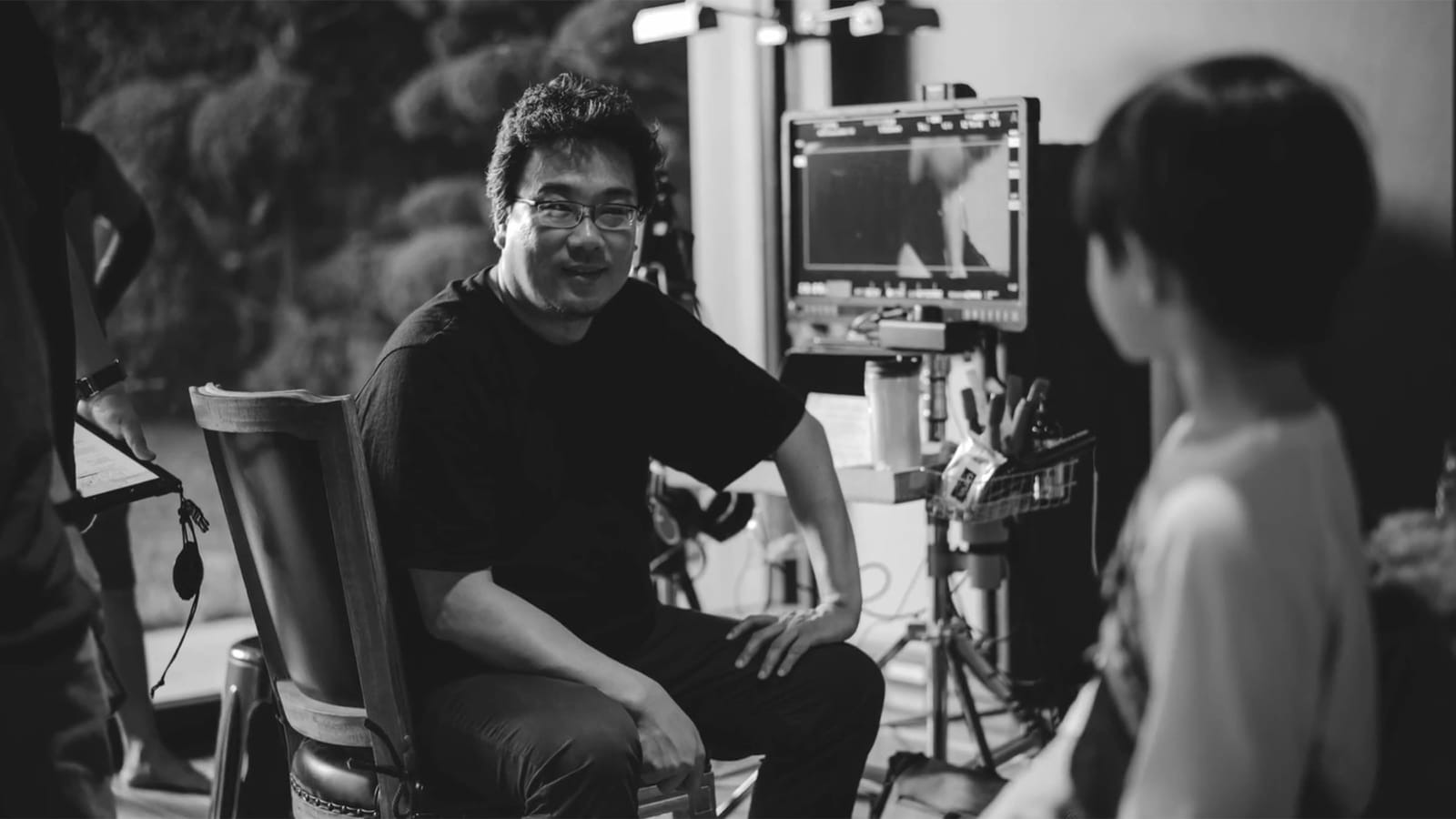
Director Bong Joon Ho
In the early nineties, Bong dedicated himself to film, and after a decade of odd jobs in the South Korean film industry, he shot to the top of the field with three consecutive masterpieces: Memories of Murder (2003), a deglamorized serial-killer mystery that uncomfortably confounds expectations; The Host (2006), a searing, Godzilla-inspired political satire that became Bong’s international breakthrough; and Mother (2009), another formula-eschewing procedural that doubles as a study of social vulnerability, about a late-middle-aged woman determined to exonerate her intellectually disabled son from a homicide charge. As it happens, the closest antecedent to Parasite is the similarly titled The Host, with both films using familial tragedy to launch larger political critiques.
Then came his international projects, with big budgets, big stars (like Chris Evans, in 2013’s dystopian sci-fi thriller Snowpiercer), and instant worldwide distribution through the likes of Netflix, which released the E.T.-esque animal-rights action adventure Okja (2017). Ironic, then, that it was his homecoming film, Parasite—his first fully South Korean–set feature in a decade—that really seized the world’s attention, winning Bong his country’s first Palme d’Or, as well as the first-ever best picture Academy Award for a non-English-language movie.
“Parasite stands out in Bong’s filmography for the severity of its conclusion, but in most ways it is the apotheosis of the auteur’s signature concerns and techniques.”
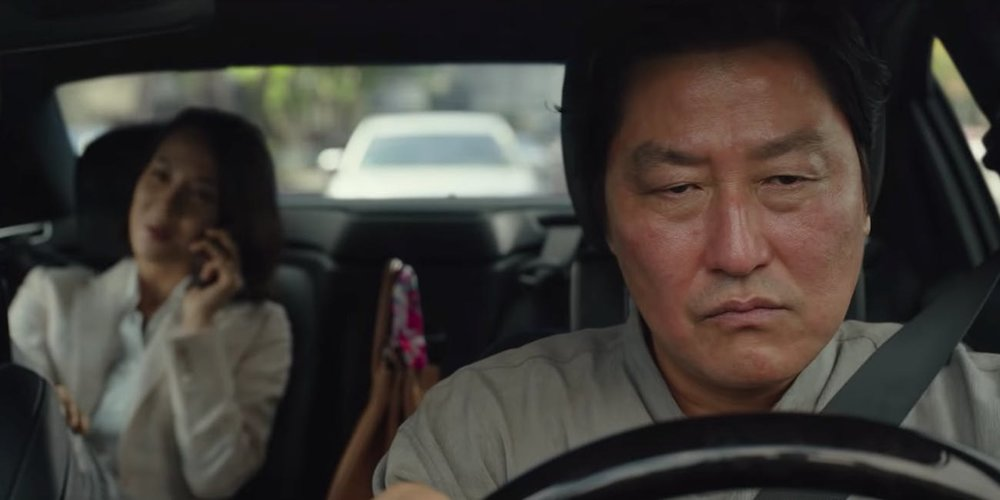
Parasite stands out in Bong’s filmography for the severity of its conclusion, but in most ways it is the apotheosis of the auteur’s signature concerns and techniques. Like many of his compatriot directors, Bong is preoccupied with the chasm between the haves and the have-nots. (Despite his towering status in the South Korean film industry even before Parasite’s four Oscar wins, his ideological convictions got him temporarily blacklisted, along with more than nine thousand other writers and artists, from receiving state subsidies by the conservative administration of since-impeached president Park Geun-hye. Korean audiences apparently missed him; Parasite was a notable critical hit and reportedly seen by a fifth of the country.) But Bong seldom lets his proles rest easy in their righteous victimhood. In many of his films, the downtrodden bully the abject, their valid resentments blinding them to their own exploitations of power. In Parasite, it’s not the wealthy Parks who pose the greatest danger to Moon-gwang and her bunker-dwelling husband (Park Myung Hoon) but rather the hardscrabble Kims. In fact, the Parks don’t know—may never know—how viciously the two struggling families have to vie with each other for steady paychecks. Wealth buys the Parks an —and a kind of untested virtue. After Mr. Kim notes that Mrs. Park is “rich but still nice,” he is swiftly corrected by his wife. Mrs. Park is “nice because she’s rich,” explains Mrs. Kim; she hasn’t ever had to harden herself. Forget her three Birkin bags; Mrs. Park’s gullibility is the film’s ultimate status symbol.
What is new to Bong’s analyses of class friction in Parasite is the film’s disillusionment with the promise of social mobility, particularly for young adults—as symbolized by the scholar’s stone, a talisman that was gifted to the Kims and is meant to bring wealth to its possessor, to which Ki-woo displays an irrational attachment. (Burning, the 2018 Lee Chang-dong thriller about a twentysomething deliveryman who suspects that a deep-pocketed acquaintance has killed for sport the woman they were competing to romance, also channels this kind of economic rage.) It is perhaps precisely this naked despair about a vanished social ladder that has found such resonance with American audiences, whose faith in their institutions continues to reach new lows. Hollywood movies are still largely built around exceptional individuals who can overcome any obstacle in their path. Bong’s protagonists, in contrast, seldom get to fulfill their cinematic destinies: the cops don’t catch the bad guy, the everydad doesn’t rescue his kidnapped daughter. Parasite lets Ki-woo dream that he, too, can be a film protagonist, the heroic anomaly—then exposes his self-delusion for what it is.
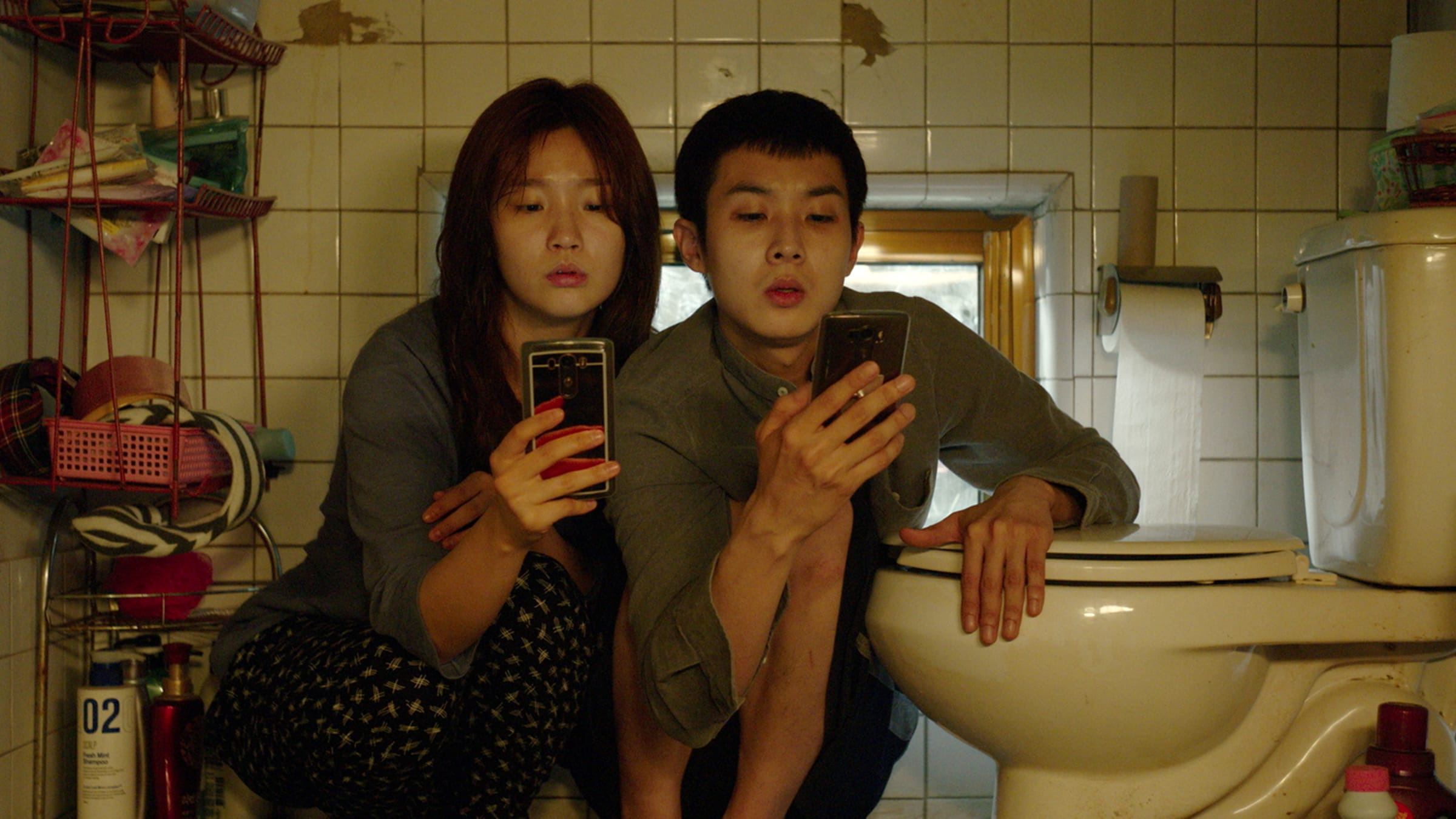
Parasite isn’t a boastfully beautiful picture, but it does supply us with an indelible visual contrast between the Kims’ overpacked, wire-festooned semibasement apartment and the Parks’ honey-toned but aggressively rectangular designer home. Both domiciles feature living rooms with wide windows (which parallel each other in “aspect ratio”), but the Kims literally look up at the world when they gaze out through theirs (and frequently see a sot pissing on the street beside the glass), while the Parks, who live behind a wall on top of a hill, have their view of the rest of the city occluded by dense panels of trees. In the back of every Korean viewer’s mind would be Seoul’s mountainous topography, which doesn’t need to be seen to expand the metaphor of the wealthy above and the poor below.
To get to their neighborhood from the Parks’ bespoke abode, the Kims must walk down many flights of grimy stairs. Their sunken apartment was apparently built in such slapdash fashion that the toilet is perched on a platform, comically making it the highest-situated spot in the home. When a storm hits, the Kims’ subterranean dwelling is flooded with sewage water; Mrs. Park, on the other hand, is so cheered by the fresh morning-after air that she throws an impromptu party for her son.
Even lower-lying than the semibasement apartment, of course, is the bunker in which some of the greatest horrors of the film take place. Part of the suspense of Parasite is watching the disparity between upstairs and downstairs grow untenably vast. When the Parks return home from an aborted camping trip, their biggest worry is that their son, who insists on sleeping in the yard in a tepee, will catch a cold. Several feet below, the original housekeeper’s husband, Geun-se, watches his beloved wife die after the Kims’ attack. By the end of the film, when Geun-se decides he can’t stay underground anymore, he hurls the scholar’s stone at Ki-woo’s already bleeding head (unaware of how aptly he is punishing the young man for his rags-to-riches fantasies), even as the Parks and their friends are making up the very picture of decadence above, picnicking on exotic foods in posh outfits, regaled by the favored musical genre of movie villains everywhere: opera.
“Much of Parasite’s appeal, though, is that Bong’s humor keeps the class allegory from ever feeling self-important or didactic.”
Much of Parasite’s appeal, though, is that Bong’s humor keeps the class allegory from ever feeling self-important or didactic. The genre subversions do much of this leavening work. Moon-gwang wields her cell phone, with its extortionate material, like a gun against the Kims, and when the two lower-class families tumble into a melee, the deciding weapon—in lieu of, perhaps, a firearm discharged into the air—is a bag of peaches.
Parasite exemplifies Bong’s often earthy, occasionally envelope-pushing jokes, which are deployed here to add intersectional nuance to the film’s class critique. The exquisitely awkward sex scene between Mr. and Mrs. Park that happens just a few feet away from the hiding Kims is made funnier first by the wife’s mewling, then by the bougie couple, in matching pajama sets, getting turned on by role-playing as their former driver and his imagined lover. (After baselessly speculating that their ex-employee must’ve been on cocaine or meth to bonk in the back seat, Mrs. Park, as part of their lovemaking game, moans, “Buy me drugs!”) But the film’s most daring gag occurs several minutes earlier, when Mrs. Kim makes a crack at her husband’s expense in front of their kids, and he grabs her shirt, threatening violence. Their children talk him down, and the couple dissolve into almost simultaneous giggles. The mere idea of spousal abuse—an epidemic in South Korea—is laughable between this pair. Their egalitarianism, however roguishly expressed, jars with the mutually discomfiting inequity that exists between the Parks, which causes the wealthy housewife to live in fear of the flimsiness of her position, and her husband to have to tell himself that he’s in love with a woman he doesn’t seem to respect.
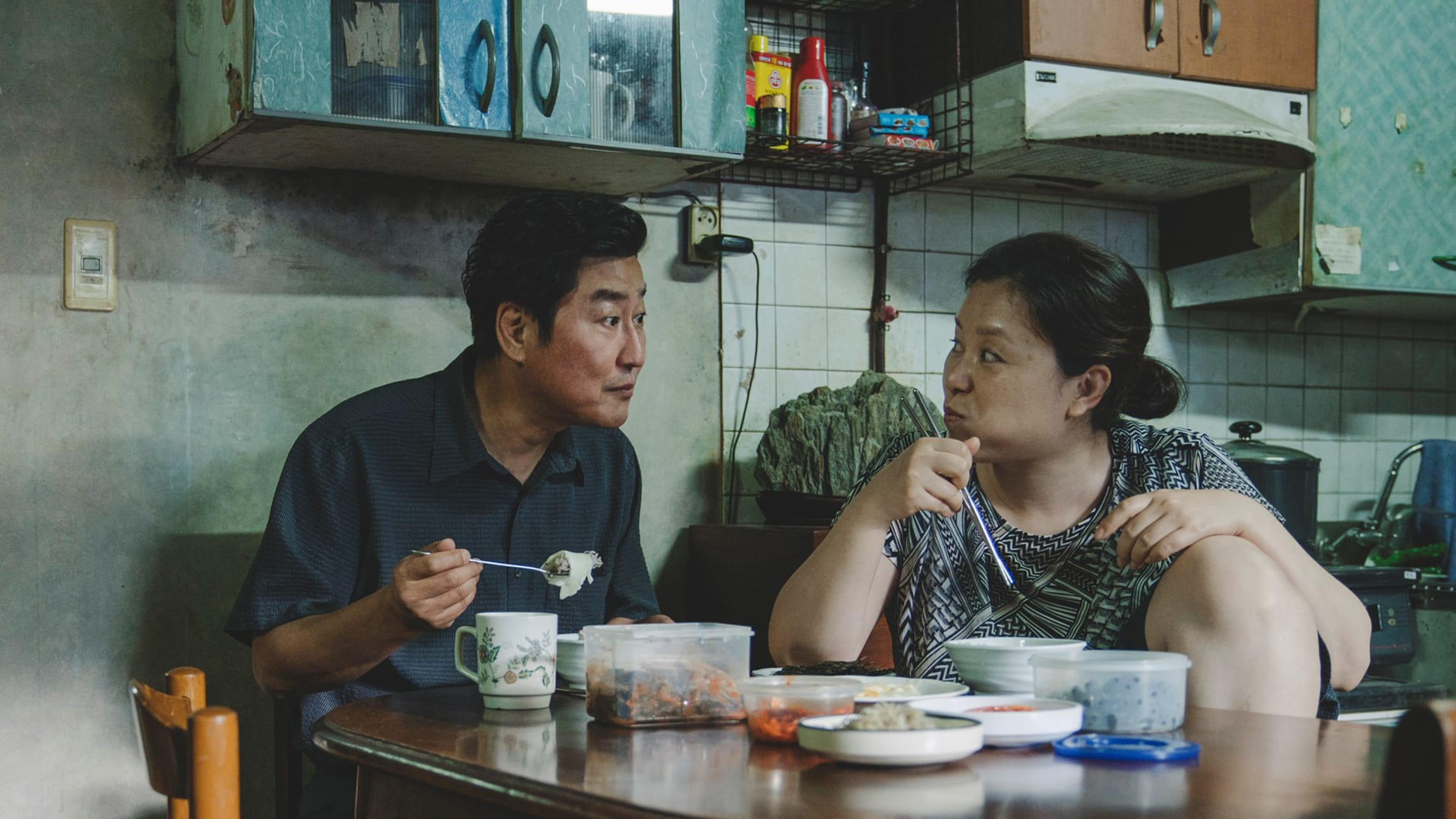
Bong found the one actor who could match his virtuosic elasticity two decades ago, near the start of his career. Song Kang Ho—whose first film with Bong was Memories of Murder, in which he plays a provincial detective—has since starred in the majority of the director’s films, always in common-man roles that undermine traditional masculine authority without sacrificing the characters’ dignity. In Parasite, he plays his darkest Bong character—the Kim family member least able to muster up sympathy for the bunker couple, and the one who ends up taking their place.
One of the most pivotal scenes in Parasite is also its most unassuming. At a school gymnasium, amid dozens of other people rendered homeless by a flood, the two Kim men speak quietly on their cots. Ki-woo asks his father what he plans to do about Moon-gwang and her husband, whom the Kims have left behind, gravely injured or tied up, to die. Seeing an opportunity to impart a life lesson to his devoted son, Mr. Kim embarks on a gallingly nihilistic monologue, informing his firstborn that “none of it fucking matters.” He places his forearm across his face, as if to keep his eyes from seeing the consequences of his decisions. It’s the film’s most pointed accusation of moral complacency on the part of the Kims, though that was previously suggested in their (hilarious) inability to acknowledge their con artistry as such. And yet the anger-tinged world-weariness that Song endows his character with thoroughly humanizes Mr. Kim’s refusal to give up any of the hard-won gains he and his family have made within the Park household. His impassivity betrays his determination to keep his position, no matter the cost.
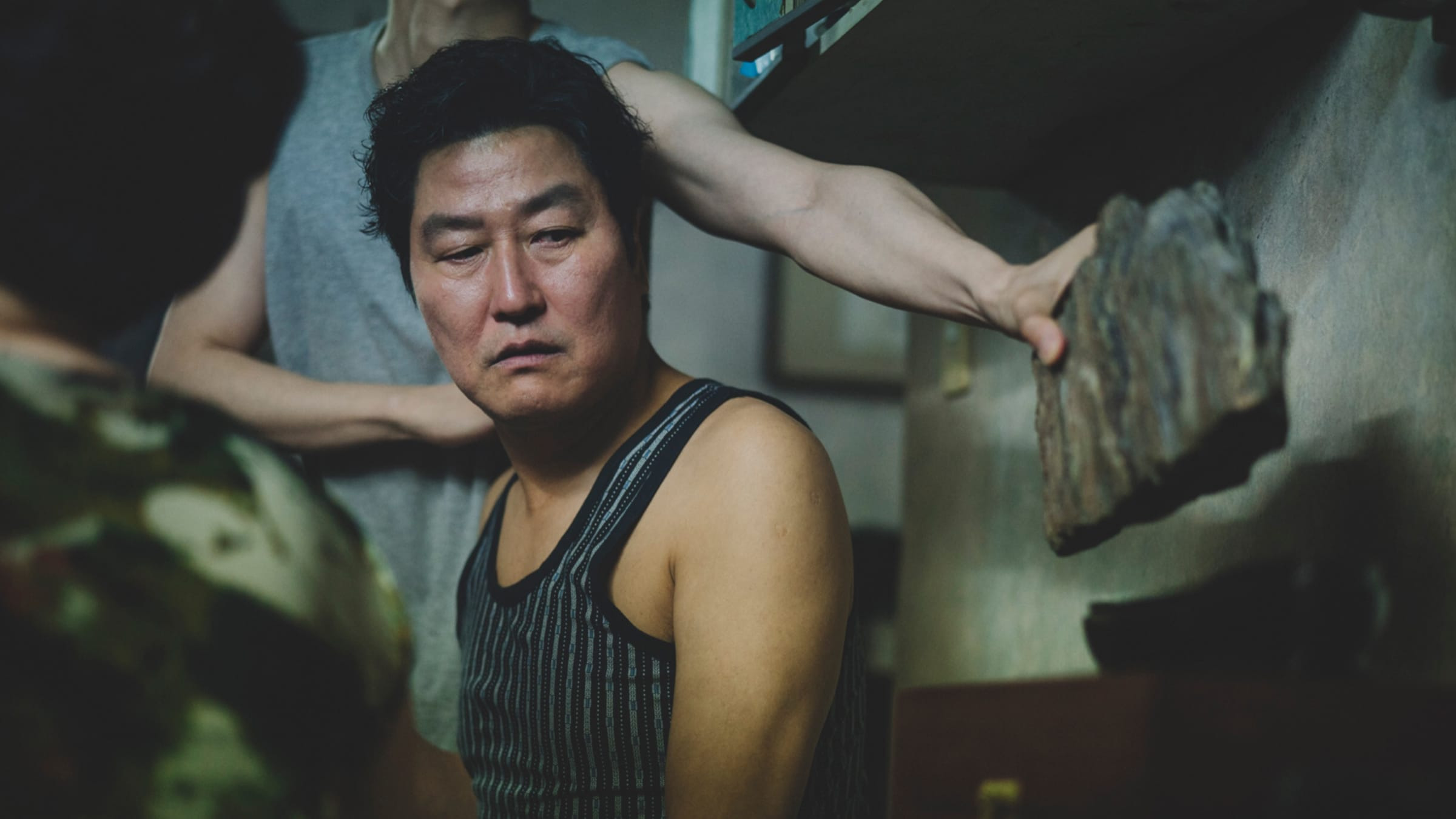
If genre blueprints make certain story beats feel predestined, Bong’s unique gift lies in making the prediction-defying swerves in his films feel like new inevitabilities. That’s never truer than in his continued reimagining of the cinematic underdog. Parasite is clear-eyed about the illusions that inequality needs in order to perpetuate itself, and about the many systems that shield one-percenters like the Parks from having to get their own hands dirty while engaged in the project of oppression. But it also reveals the Kims, as sympathetic and unfairly treated as they are, as utterly capable of the banality of evil, in part because of their own overidentification with underdogs, and the inherent goodness they assume they can lay claim to. The layers of self-deception build on top of one another until, finally, it all comes crashing down.
MOVIE DETAILS
| Directed by | Bong Joon-ho |
|---|---|
| Produced by | Kwak Sin-ae |
| Moon Yang-kwon | |
| Bong Joon-ho | |
| Jang Young-hwan | |
| Starring | Song Kang-ho |
| Lee Sun-kyun | |
| Cho Yeo-jeong | |
| Choi Woo-shik | |
| Park So-dam | |
| Release date | 21 May 2019 |
| Running time | 132 minutes |
| Language | Korean |


